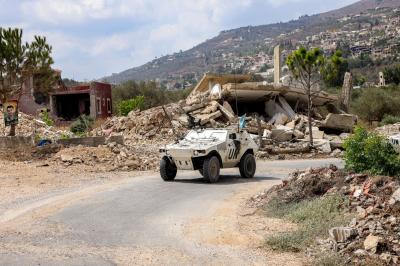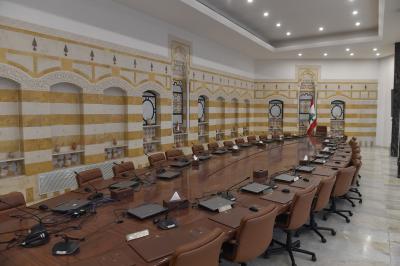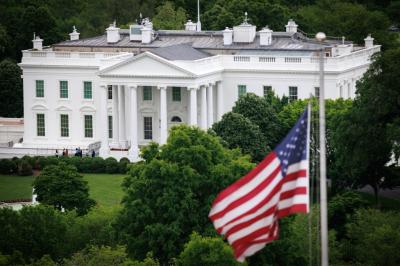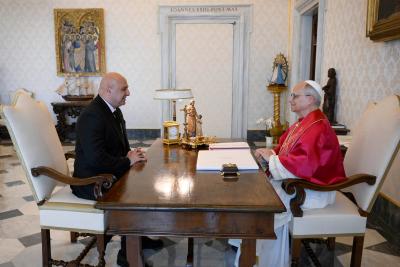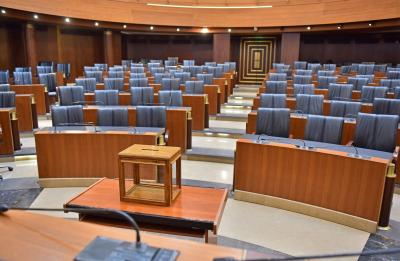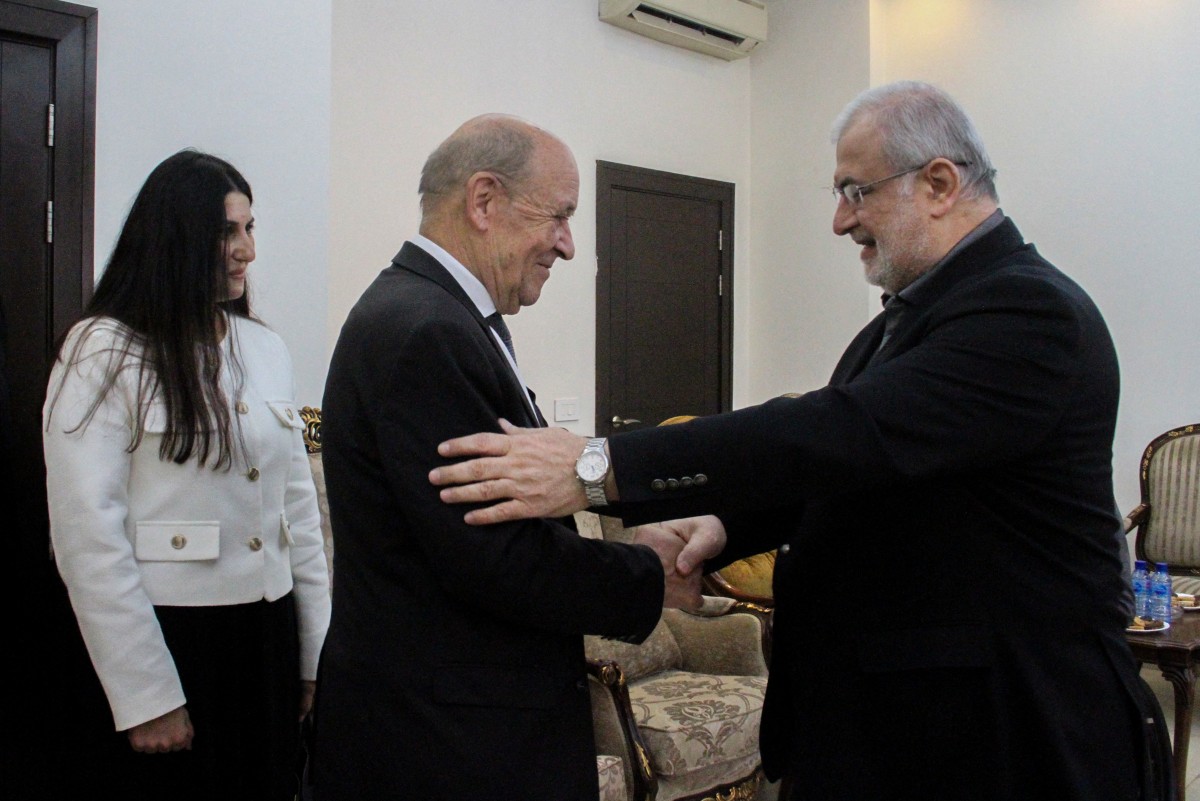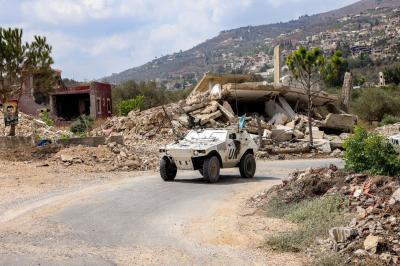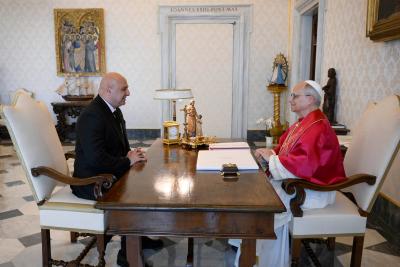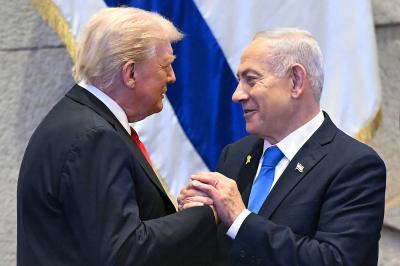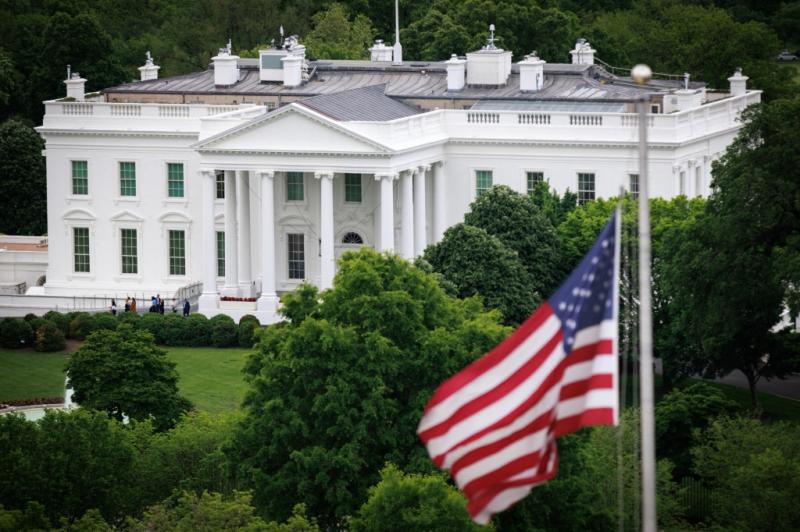One of the worst fates a nation can suffer is to be plunged into uncertainty, its people and institutions adrift without a compass. This is exactly where Lebanon finds itself today—grappling with blurred horizons and a clear sense of direction.
Just six months ago, the country seemed to glimpse through a window of salvation. But that hope has since evaporated, squandered by both internal hesitations and external complexities. Chief among the culprits: a never ending political game of evasion, indecisiveness both politically and on the ground, and a chronic failure to act.
Lebanon's paralysis plays out against a volatile backdrop: tough, stalled U.S.-Iranian negotiations, an aggressive Israeli push to tip the regional balance of power in its favor, and what some are calling an “objective alliance” in southern Lebanon between “Hezbollah” loyalists and Israeli calculations—particularly in their mutual tensions with UNIFIL. Meanwhile, the so-called “dialogue on disarmament” between The Presidency and “Hezbollah’s” headquarters in Haret Hreik is more a ritual of politeness than a serious reckoning.
In this fog, Lebanon’s decision-making is erratic. Its sovereignty, reform promises, and reconstruction efforts appear increasingly hollow.
The international community has made it clear: Lebanon is nearing its last chance for salvation. Yet the country’s leaders treat such warnings as soft nudges rather than deadlines. They ask for extensions—without offering the world any compelling reason to grant them.
Some Lebanese officials seem to believe they can exploit divisions among foreign emissaries. The French envoy, Jean-Yves Le Drian, points to a Parisian focus on reform, reconstruction, and the routine extension of the UNIFIL mandate. Meanwhile, the U.S. is expected to shift course, with envoy Tom Barrack reportedly prioritizing “Hezbollah’s” disarmament and the potential expansion—or even dismantling—of the UNIFIL mission.
Lebanese leaders also appear to be betting on a supposed rift between the U.S. President Donald Trump and Israeli Prime Minister Benjamin Netanyahu. But their recent phone call revealed an alignment—at least regarding Israel’s actions in Lebanon and caution over military strikes on Iran until the fate of negotiations becomes clearer. After recent setbacks in Los Angeles, the war in Ukraine, and the Gaza crisis, Trump may now find himself needing Netanyahu more than ever. This could explain his intervention to prevent the Israeli government’s collapse in the Knesset.
But even if such Western fault lines are real, they don’t justify Lebanon’s current foot-dragging. The region is shifting rapidly, and Lebanon’s sluggish political response—a ruling class walking at a snail’s pace—can’t keep up.
Israeli airstrikes have become routine, relentless. The Lebanese Army, lacking the mandate or power to intervene, now acts more like an observer than a defender. It either scouts for future strike zones or plays neutral referee between UNIFIL and “Hezbollah”-affiliated civilians.
The recent slap delivered by a “Hezbollah” fighter to an Irish peacekeeper wasn’t just an individual act—it was a dual insult: to Lebanon’s sovereignty and to the United Nations. It echoed the tragic killing of another Irish peacekeeper years ago, allegedly by a “Hezbollah’s” partisan.
Hopes that Parliament Speaker Nabih Berri might diverge from “Hezbollah’s” line—fueled by a municipal statement from Bedyas, a town aligned with him, in support of UNIFIL—are misplaced. At best, his position reflects temporary tactical distancing. His deeper stance remains unchanged: unwavering alignment with “Hezbollah”, “whether right or wrong.”
This unproductive ambiguity is dangerous. It could allow matters to spiral beyond control. Some observers are already predicting that this summer may bring the final chapter of a war whose earlier episodes have already devastated the country. Lebanon cannot excuse inaction on the grounds of avoiding civil war. The state has a duty to confront what could become a bloody, destructive chapter.
Today, the state and “Hezbollah” share a mutual interest in defusing this threat. The key question: Can the state persuade “Hezbollah” to abandon a now-defunct arsenal—and more importantly, to halt efforts at its renewal?
And perhaps the bigger question: Does “Hezbollah” understand the dark path ahead? Its financial and logistical lifelines—chiefly Syrian—have dried up. The ground is shifting beneath it.
Addressing this moment requires two distinct forms of courage:
The courage of the state to act.
And the courage of “Hezbollah” to step back.
Otherwise, what was once an individual lament—“I should have known”—may soon become a collective regret:
“We should have known better”.
Please post your comments on:
[email protected]
 Politics
Politics
